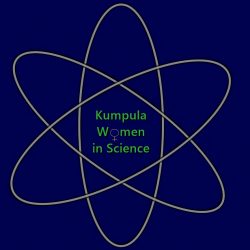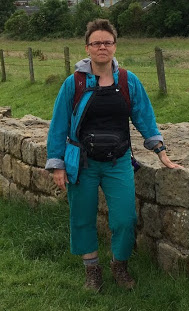About one year ago, out of the blue, I contacted Prof. Hanna Vehkamäki and introduced myself as passionate about gender equality and equal opportunities. I heard she was keen on the same themes and I wanted to talk about what could be done to create a more positive environment for women here in Kumpulan Kampus. The outcome of this meeting was the start of our successful network of women. I am very glad that she accepted to share her advice and her story here on our blog: welcome!
Could you introduce yourself?
I am a professor in computational aerosol physics at the Department of Physics.
In simple words, what is your research about?
My research is theoretical and computational work on understanding on molecular level how trace gas molecules (such as sulphuric acid, ammonia, organics and water) in the air collide and stick together to form clusters that eventually can grow to larger aerosol particles that can affect health and climate
When and why did you decide to pursue a career in physics?
At high school my mathematics and physics teacher was very inspiring, he demanded a lot but was at the same time fair and encouraging. I can not really say whether it was the subject or the teacher that had the decisive role. I enjoyed solving problems that were sufficiently hard so that the internal reward was great when I understood. I asked the teacher whether I should take mathematics or physics an my main subject at the university, and he said physics, as the things he knows I enjoy doing most are central in university physics rather than mathematics
What are the hardest challenges of being a team leader?
Being open, honest and fair at the same time as trying to be a good leader with a professional attitude to leadership. And obtaining a constant stream of funding…
What do you consider your greatest science achievement?
Contributing to the realization that a significant fraction of key trace gas molecules can be attached to very small clusters with only a few molecules. Earlier the picture in the minds of atmospheric scientists was mostly that the clusters grow when single gas molecules collide with them, and cluster-cluster collisions are insignificantly rare as there a much more single molecules that clusters. Now we know or suspect that in certain chemical mixtures smallest clusters and their collisions to other clusters can be very important. Experimentalist have also started to see the implications of this, which is very exciting
Last May you received the Maikki Friberg award for your efforts to promote gender equality in science: what motivates you? What do you reward as your best achievements and what challenges are you focusing on now?
Motivation: To help to make the abilities of all different kinds of people blossom, and strive for a working environment where creativity is not hampered by subordination, humiliation, neglect, extreme competition or other bad spirit.
Best achievement: Increased awareness of work well being and equality (not only gender but also linguistic, cultural etc) issues at our division , and the fact our division has an equality and work well being group, with also male members. The group monitors well being by surveys and design measures to improve the culture of the community.
Focus now: We have lately focused on information flow, and meeting culture, as these are important factors in creating the feeling of being and ‘insider’ or ‘outsider’, having means to affect your work situation or feeling frustrated and powerless. This benefits men and women alike, and is thus easy to justify something to be invested in.
What do you love to do in your spare time?
Read, often something related to history, do some exercise such as walk, orienteer and swim, play board games, listen to metal music. Some of these hobbies I share with my 8 and 10 year old daughters and husband.
Do you have any career advice to share with young physicists?
Working hard is essential no matter how talented you are, but do start taking care of your of physical and mental well being early on, and make it a habit. It makes you more effective and improves your output rather than stealing time from scientific achievements. Learn to know methods and people also out of the box of your immediate MSc or PhD training group.
Do you have a message for girls who are physics students or are considering to study or work in physics?
You don’t need to fit a certain pattern to be a good physicist or researcher in general. Diversity is really good for science and creativity. You have all the ingredient to became a physicist, it is your own interest and motivation that matters.


